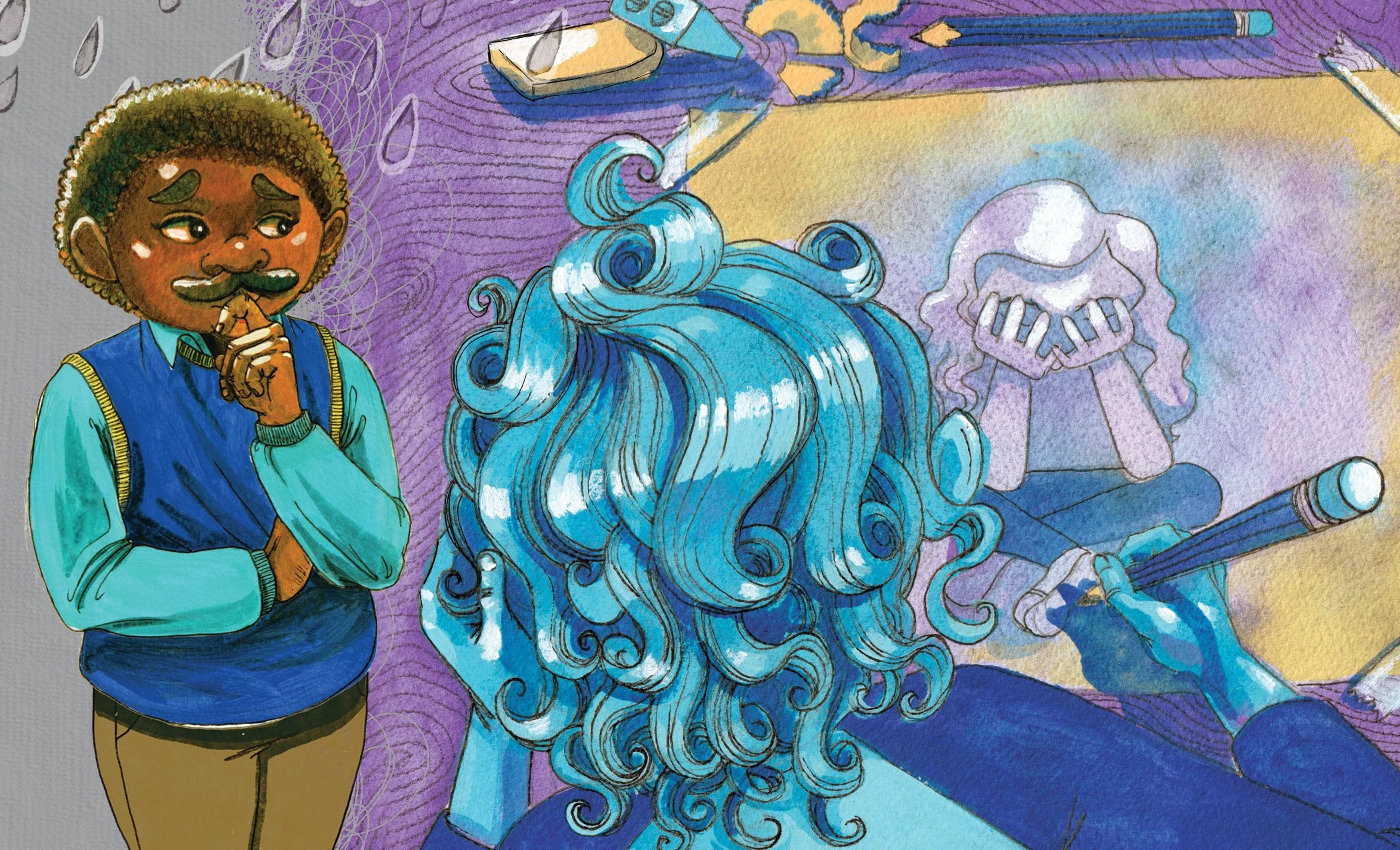What To Do When Your Talented Child Starts Getting Bullied BECAUSE of Their Talent
Bullying is defined as any repeated aggressive behavior in which there is a power imbalance, real or perceived by the person being bullied. As a child, I understood the traditional type of bullying: name calling, physical harm, gossip, and the like. But what I didn’t realize until much later in life is that excluding someone from a group intentionally - or including them when their talents are needed, then ignoring them after…over and over again - is just as validly a form of bullying that can have the same disastrous effects.
Have these thoughts ever crossed your mind? “I’m only worthy if I’m contributing something? I’m only worthy if someone needs me?”
And while it’s nice to be needed…kids also NEED to grow up knowing they are worth love, attention and friendship even when they aren’t being productive or useful to someone else.
I grew up a gifted artist and experienced the “being popular when something artistic was needed, then all but disappearing afterwards” kind of bullying. Most children with some sort of talent, whether it’s in the visual arts, performing arts, sports, or academics, have or will experience being asked to “perform” their talents for both peers and adults at the drop of a hat.
What makes this kind of bullying particularly scary is that it doesn’t end at school. Parents, grandparents, and trusted adults can pile on to school bullying when they ask their gifted relatives to “show off” at home or at family functions, effectively giving the child no safe place to just be a whole person instead of just the day’s entertainment. For me, the pressure to make a perfect recreation of some Disney character or draw someone’s perfect likeness in 2 minutes while trying to relax at a family gathering became too much to handle for the 10 year old version of myself, so I would isolate instead of feeling like part of the group. You can imagine what that does to a little kid who also doesn’t quite fit in at school either…
This kind of exploitation can also box a young person in…thinking they are ONLY the sum of this one talent and if they don’t pursue that ONE talent, or get a full scholarship or end up using that talent for the rest of their lives, they can feel lost. They can feel like their talent was wasted on someone who can’t fulfill its promise. Kids can be talented at a variety of things simultaneously. They need the time and freedom to explore without the adults in their lives attaching them to one thing for the rest of their lives.
Researchers at Purdue University “found that by eighth grade, more than two-thirds of gifted students had been victims of bullying.” “All children are affected adversely by bullying, but gifted children differ from other children in significant ways,” says Jean Sunde Peterson, an associate professor of educational studies in Purdue’s College of Education.
“Many [gifted children] are intense, sensitive and stressed by their own and others’ high expectations. Additionally, social justice issues are very important to them and they struggle to make sense of cruelty and aggression. Perfectionists may become even more self-critical, trying to avoid mistakes that might draw attention to themselves.”
Because gifted children are often targeted by bullies because of their talents - which should be celebrated – those talents soon become a source of embarrassment or stress. And the effects can be scary, such as increased levels of depression, rage, suicidal thoughts and self-harm.
In addition, for those children who grow up to indeed use those talents as a source of income, it can be really hard for them to set boundaries around fair compensation (or compensation at all) for those talents when they’ve been expected to “perform” for free during their entire adolescence.
Unfortunately, there is not one sure-fire way to stop bullying. However, when the bullying is centered around a gifted child being asked to use their talents, we need to give our children the confidence and self-awareness to set their own boundaries. Some kids will always find joy in “performing” their talents in whatever setting they may find themselves. But for those who find it embarrassing or can’t take the pressure, there are some things we can do as adults to counterbalance the feelings of exploitation.
When a child comes to you to talk about being bullied, you should:
Be careful not to over-react or under-react. Take cues from your child and match them. Ask questions about how the situation is affecting them instead of assuming their feelings
Make sure to NOT blame the child. It’s important for victims to realize being bullied is not their fault. However, it is often left to the person being bullied to at least assist in stopping it. Having a conversation with your child about what they can say to their bully can prepare them for that very difficult confrontation.
When the child IS doing what they are talented at, give them privacy unless they invite you to watch/listen.
Recognize and reinforce that their talent is just that…THEIRS. They get to decide who gets a piece of it and when.
Make sure your child knows that “no” is a full sentence. One does not need to explain themselves when they are setting their boundaries. A little song and dance for the grandparents or neighbors could be “cute” in the moment, but it could also be setting really damaging expectations later in life.

